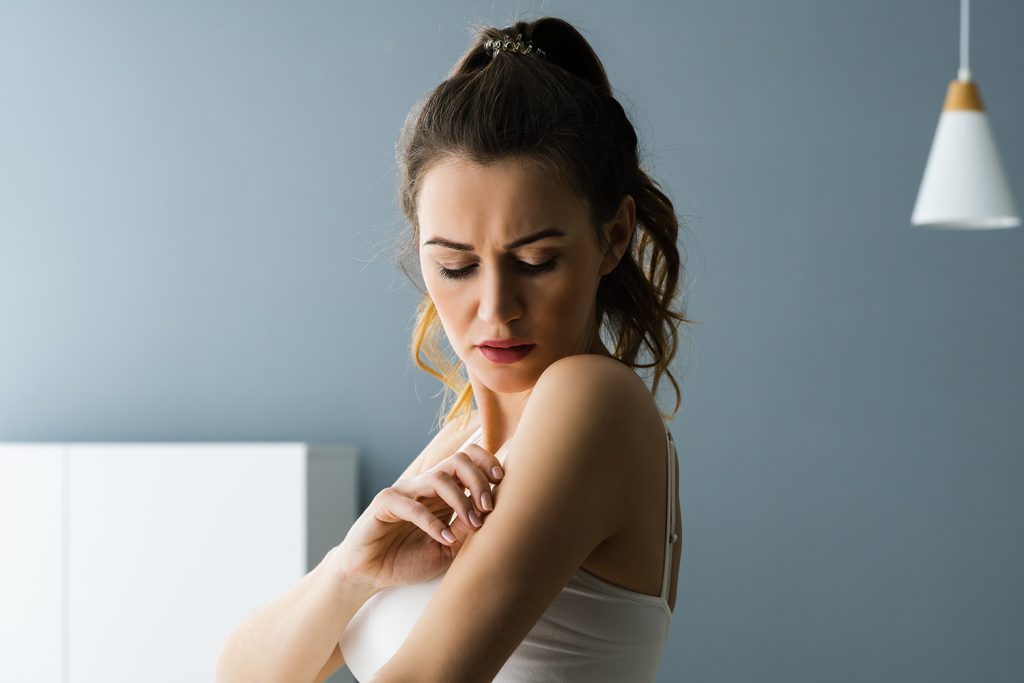Eczema Treatment
Consultations offered at our seven convenient locations in Manhattan New York City, Princeton New Jersey, Scarsdale, Woodbury Long Island, Southampton, Smithtown and Boca Raton, Florida

Eczema can be difficult to deal with. Although there is no cure, there are ways to manage symptoms: Eczema, or atopic dermatitis, is a common skin condition that affects many people. At Greenberg Cosmetic Surgery and Dermatology, we understand how difficult it can be to deal with eczema, and that is why we offer effective treatment options to help you manage your eczema.
Contents
Causes

Eczema is caused by a gene variation that prevents the skin’s ability to maintain necessary moisture for protection from harmful debris and outside invaders such as bacteria that can easily infect the skin. It is a condition that acts closely to an allergic reaction because it typically appears as red and rash-like patches. The affected area may even experience blisters filled with fluid. Breakouts are sporadic and may appear in plaques. Eczema can develop at any age, and currently affects many people
Treatments
The main goal of treatment is to control the uncomfortable symptoms. Treatments used to manage eczema include:
Medications
Eczema meds can help to alleviate symptoms, as well as allow for your skin to heal. You will need to consult with a medical professional regarding the right prescription for you because medications don’t guarantee the same results for every patient.
Corticosteroid Topicals
Specialized creams, solutions, foams, and ointments can help to quickly reduce inflammation, as well as alleviate itching. Strengths and types vary depending on your specific rash severity.
Phototherapy
Moderate to severe eczema can be managed with UV rays that prevent the immune system from overreacting.
At Home Care

Ways to manage your eczema at home can be to take a warm bath. Hot water can dry out the skin, and a cleanser should be used instead of soap. After baths, make sure to immediately apply moisturizers to your skin. The moisturizer should be fragrance-free to avoid irritation.
Knowing your eczema triggers is important for properly managing it. Pollen, dust, and mold are all factors that can cause eczema flare-ups. Avoiding these can help you avoid symptoms of discomfort.
Stress is another surprising factor that can cause flare-ups. Keeping your stress levels low is essential for your skin and overall health.
Symptoms
Common eczema symptoms include:
- Tiny blister-like bumps
- Dry skin
- Itchiness
- Scaly skin
- Red patches of skin
Eczema Treatment Cost
There are a variety of treatment options available to help manage your eczema. The cost of your eczema treatment at Greenberg Cosmetic Surgery and Dermatology will depend on the type of treatment chosen and other factors. The price will be discussed during your consultation.
Schedule a Consultation
If you are looking for a safe and effective treatment that can help you manage your eczema, contact Greenberg Cosmetic Surgery and Dermatology today to schedule a consultation. Our medical professionals can help to determine the best treatment option available to you.
